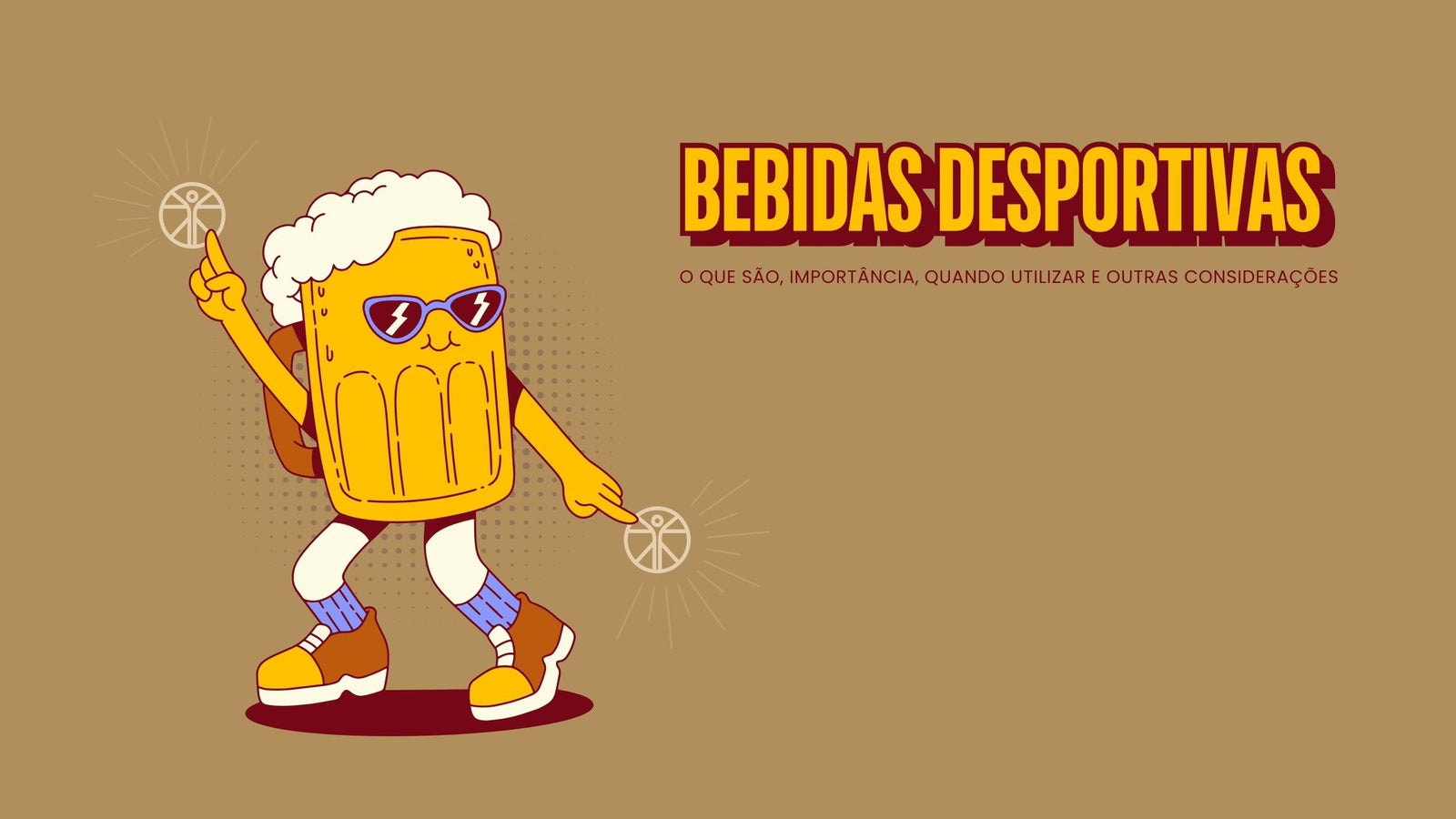What is a sports drink?
An isotonic drink, also known as a sports drink, is a solution that contains concentrations of salts and sugars similar to those found in the human body. These drinks are designed to rehydrate and replace electrolytes lost during intense or prolonged physical activity, helping to maintain fluid balance and prevent dehydration.
Main characteristics of an isotonic drink:
Carbohydrate Concentration : 4-8% (4-8 g/100 ml), sufficient to provide energy without causing gastrointestinal discomfort.
Electrolytes : 23–69 mg/100 ml (10–30 mmol/L), especially sodium, which helps with fluid retention, prevents cramps and improves recovery.
Osmolarity : 270-330 mOsm/L, similar to that of human plasma, ensuring rapid absorption.
Importance of Electrolytes
In addition to improving the palatability of the beverage, electrolytes (especially sodium) play a key role in stimulating the physiological urge to drink . This is because:
- Sodium intake increases plasma sodium concentration, raising plasma osmolality.
- Osmoreceptors detect these changes and send signals to the brain to stimulate thirst.
Studies show that the presence of low to moderate amounts of sodium (18-40 mmol/L) improves palatability and increases ad libitum fluid intake , that is, the amount that people drink voluntarily.
Before and After Exercise
The composition of sports drinks plays an important role in rehydration and fluid retention, and is influenced by the time interval between training or competition sessions:
Rapid Rehydration (short interval between sessions):
- It is necessary to replace fluids and electrolytes quickly.
- Beverages with low sodium and energy density are ideal, promoting fluid retention and restoring plasma volume without delaying the supply of fluids to the circulation.
- Avoid energy-dense drinks, as these slow gastric emptying and may cause gastrointestinal discomfort during your next workout.
Long Break Between Sessions (several hours):
- More energy-dense beverages, such as milk or carbohydrate/protein-based options, are effective for rehydration and recovery.
- Another approach is to combine water with food , if there is enough time for digestion before the next activity.
Other Considerations
- Caffeine : Moderate intake (up to 400 mg/day) does not negatively affect fluid balance and can be consumed during rehydration.
- Alcohol : Drinks with more than 2% alcohol should be avoided, as they stimulate diuresis and impair rehydration.
When to use sports drinks?
Isotonic drinks are best suited for:
- High-intensity exercise lasting more than 60 minutes.
- Conditions of extreme heat , with great loss of fluids through sweat.
- Endurance sports , such as running, cycling or triathlon.
Note: Sports drinks should be consumed in moderation and not indiscriminately. Due to their high sugar and sodium content, frequent and prolonged consumption (daily) can have undesirable consequences. These drinks are not a substitute for the water intake required for adequate hydration on a daily basis and, in the long term, can contribute to excess sodium (salt) and sugar in the diet, which is incompatible with a healthy diet.
Rui Lopes
BMS Nutritionists
Baker, L. B., and A. E. Jeukendrup (2014). Optimal composition of fluid-replacement beverages. Comp. Physiol. 4:575-620
Burdon, CA, NA Johnson, PG Chapman, and HT O'Connor (2012). Influence of beverage temperature on palatability and fluid intake during endurance exercise: a systematic review. Int. J. Sport Nutr. Exercise Metab. 22:199-211.
Evans, G.H., S.M. Shirreffs, and R.J. Maughan (2009). Postexercise rehydration in man: the effects of osmolality and carbohydrate content of ingested drinks. Nutrition 25:905- 913
Jeukendrup, A. E. (2010). Carbohydrate and exercise performance: the role of multiple transportable carbohydrates. Curr. Opinion. Clinic. Nutr. Metab. Care 13:452-457. Jeukendrup, A.E., and L. Moseley (2010). Multiple transportable carbohydrates enhance gastric emptying and fluid delivery. Scand. J Med Sci Sports 20:112-121. Jeukendrup, A. E., K. Currell, J. Clarke, J. Cole, and A. K. Blannin (2009). Effect of beverage glucose and sodium content on fluid delivery. Nutr. Metab. 6:9.
Minehan, M.R., M.D. Riley, and L.M. Burke (2002). Effect of flavor and awareness of kilojoule content of drinks on preference and fluid balance in team sports. Int. J. Sport Nutr. Exercise Metab. 12:81-92.
Maughan, R. J., P. Watson, P. A. Cordery, N. P. Walsh, S. J. Oliver, A. Dolci, N. Rodriguez Sanchez, and S. D. R. Galloway (2019). Sucrose and sodium but not caffeine content influence the retention of beverages in humans under euhydrated conditions. Int. J. Sport Nutr. Exercise Metab. 29:51-60.
Nose, H., G. W. Mack, X. R. Shi, and E. R. Nadel (1988). Role of osmolality and plasma volume during rehydration in humans. J. Appl. Physiol. 65:325-331.

